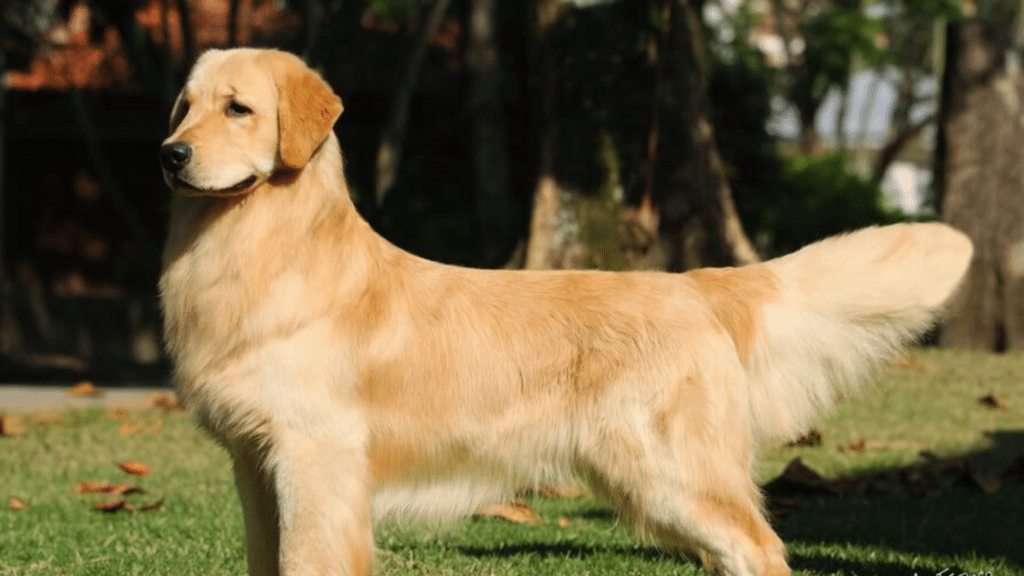Retired Golden Retriever Defined
A retired golden retriever refers to a golden retriever that is either too old or no longer able to carry out its functions like hunting, retrieving or serving humans. Old age, injuries, or physical and mental changes are some reasons why a golden retriever can retire.
Brief Introduction to Golden Retrievers
The friendly and intelligent nature of Golden Retrievers makes them popular breeds of dog. They are a former hunting breed in Scotland that have become domestic pets and are sometimes even employed as therapy, assistance, or companion animals. These dogs come in medium to large sizes with shiny coats which are golden, and they also bear gentle eyes, adoration, and love for living. They typically weigh between 55 and 75 pounds as adults, and they have a lifespan of 10 to 12 years.
Importance of discussing retired golden retrievers
The Importance of discussing retired golden retriever focuses on understanding their special needs with regard to aging or after retirement from service. Knowledge about how difficult it can be caring for older gold retrievers will inform someone who may be contemplating adopting one of these well liked pets. Additionally, talking about retired golden retrievers can raise awareness about the need for all dogs regardless of age or ability to perform certain tasks in order to get proper care plus support.
Characteristics of a Retired Golden Retriever
Physical characteristics
- Body size: Usually, aging golden retrievers weigh 55–75 pounds, with male dogs being heavier than females. The weight of these canines like a number of factors including inheritance, nutritional habits and amount of exercise they get. Normally, a mature male golden retriever may weigh between 65 to 75 pounds, while its female peer may weigh anything from 55 to 65 pounds.
- Color and texture of the fur: Golden retrievers have lustrous gold hair whose shade can range from pale cream to deep yellow. The coat is sometimes wavy, some are straight, but they have a thick down undercoat. Regular grooming helps maintain the good quality of this fur.
- Average retirement ages: Typically, golden retrievers are considered retirees when they hit between ten and twelve years old. This happens to be the average lifespan for most members of their breed.`
Behavioral traits
- Personality traits: These dogs are known for their friendliness, intelligence, and affectionateness even after retiring as pets. They are also outgoing, playful and gentle, hence very suitable for families or single individuals as well.
- Energy levels: Golden Retrievers have high energy needs that should not be compromised by at least an hour’s exercise every day. With time, however, their energy levels might decrease, though they still enjoy taking short walks and playing around.
- The most common health problems in older golden retrievers include hip dysplasia and cancer, which tend to affect them more frequently than other dog breeds (Byers). Some other conditions such as elbow dysplasia, cataracts, progressive retinal atrophy (PRA), hypothyroidism, gastric dilatation-volvulus (bloat), allergies are common in older golden retrievers too. Thus, frequent vet checkups plus observance of a healthy lifestyle become essential if one wants to keep his/her pet healthy.
Life Before Retirement
Typical golden retriever roles
- Service dogs: They are commonly employed as service dogs for people with disabilities of different types and provide assistance in various ways which include; opening doors, retrieving things, along with giving emotional support.
- Therapy dogs: Golden retrievers can also be great therapy animals in hospitals, schools, or even old age homes while providing comfort to patients.
- Hunting partners: Initially bred as hunting companions, they are excellent in game tracking and retrieval, hence making them good hunting partners.
Specialized training and fitness for certain tasks
- Obedience Training: They are easily trainable and respond well to obedience that is necessary for their use as service/therapy dogs.
- Specialized task training: Retrieving, guiding or simply emotional support demands special training from specific Golden retriever breeders.
Transition to Retirement
Signs indicating it’s time for retirement
- Physical Limitations: Physical indicators of retirement readiness encompass ill-health, fatigue and decreased physical abilities that affect work activities.
- Behavioral Changes: Feeling emotionally drained, job dissatisfaction and burnouts could mean that it’s high time one retires.
Necessary Adjustments for Retirement Life
- Changes in diet and exercise routine: After retiring from work, changes in eating habits and workout programs may be required to ensure good health of the body. Regular fitness exercises plus a proper nutrition can help the aged stay active and healthy.
- Mind stimulation as well as enrichment activities: Hobbies, learning new skills or volunteering are kinds of activities which will give mental satisfaction during retirement.
- Health Monitoring And Veterinary Care: Proper health monitoring by veterinarians is necessary for retired golden retrievers, who are at risk for many age-related diseases if not monitored regularly. Regular check-ups, the right kind of food they eat daily and being attentive to signs of pain or sickness is very important to keep them healthy after retirement.
Activities and Care for Retired Golden Retrievers
Appropriate Exercise Plans
- Low-Impact Activities: Golden Retrievers that do not have to be at an energetic pace when they retire should engage in light exercises or swimming and walk instead of jogging, which may cause damage to their joints.
- Mental Stimulation Games: Puzzles, toys, and scent games are some mental stimulation games that retired golden retriever can indulge in keeping them sharp even during their senior years as well as providing fun and enrichment.
Dietary Considerations
- Senior-Specific Diets: It is essential to offer senior-specific diets tailored to nutritional needs for retired Golden Retrievers that enable support aging bodies and maintaining their overall health and well-being.
- Monitoring Calorie Intake: Avoiding weight gain in elderly retrievers requires monitoring calorie intake by controlling diet, this will help manage the pet’s weight, reducing chances of obesity related health problems.
Regular Veterinary Check-Ups and Preventive Care
- Monitoring for Age-Related Health Issues: Regular veterinary check-ups are crucial in retired Golden Retrievers, as these could pick early signs of age-related diseases, hence helping maintain a better way of living for those dogs before they occur in the future.
- Vaccinations and Parasite Control: Ensuring retired Golden Retrievers receive necessary vaccinations and parasite control measures as recommended by the veterinarian is crucial to protect their health and prevent common diseases and infestations.
Emotional Support for Retired Golden Retrievers
Golden Retrievers are very friendly and loving dogs, therefore they make wonderful companion animals as well as emotional support animals. Their intelligence and eagerness to please make this breed an easy one to train for many purposes, including service work.
Importance of maintaining bonds with humans
- Continue positive reinforcement training: It can be used even in old age during the retirement period for golden retrievers in order to keep them mentally stimulated and maintain good relationship between the pets and their handlers.
- Spending quality time with owners: This is crucial for retired golden retriever’s emotional welfare and happiness generally. The activities may involve playing fetch, walking around, or simply cuddling down on a couch.
Understanding signs of anxiety or depression
- Comforting: Retired Golden Retrievers can become anxious or depressed due to changes in routine or losing a job. Such feelings can be alleviated by giving them comfort through physical touch, talking softly with them, or engaging in their favorite activities.
- Seeking professional help if needed: In case retired golden retriever shows persistent signs of depression like lack of appetite, excessive sleepiness or destructive behavior; seeking helps from veterinary officer may help you make decisions regarding your pet’s health condition out of anxiety disorders.
Conclusion
In Conclusion, it is important for the well-being and happiness of retired golden retrievers to understand what they require. In their old age, these pets require more care and attention to ensure that they are comfortable. It is imperative to adjust exercise routines, create a comfortable living environment and be able to identify signs of aging among golden retrievers. All dogs require preventive care as well as regular veterinarian check-ups, which cater for retirees while still picking up on any signs of ill health early enough. By doing this we can campaign for the welfare not only of retired golden retrievers but also all canines, thus ensuring that such cherished friends live the remaining chapters of their lives with love, affection, and respect.

